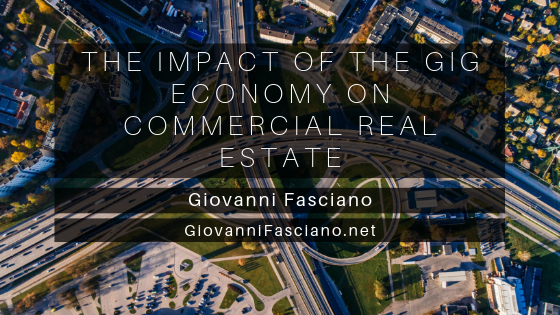The gig economy is a growing trend among large societies and could give way to a revolution of how people view the way that they work. More and more people are turning to the gig economy to support themselves and to take advantage of the freedoms that this kind of work entails. The commercial real estate business has begun to change due to the rise of interest in remote work within the gig economy. Here, we will talk about some ways that the gig economy is effecting the real estate market and what businesses can do to keep up.
A Coworking, Collaborative Space
People who participate in the gig economy are still looking for spaces to work safely and securely. Many new businesses have popped up that supply individuals with a high-speed internet connection and some basic office supplies that professionals can rent out for a few days. If a business has a small team of people, there are growing spaces in the commercial real estate market that allow these individuals to meet up from time to time. Promoting an environment of sharing and collaboration has been a growing trend in businesses for some time. The commercial real estate should be seeing a steady increase of interest in these collaborative spaces in the future.
Promoting Smart Cities
The effects of the gig economy on cities could also take the form of advancements in technology around the country. Workers in the gig economy demand easy and accessible ways of completing their work and communicating with their team. These kinds of demands could drive the real estate market to make their processes more efficient and timely, while also trying to give the gig workers everything that they will need in a specific space. Commercial real estate properties will be packed with technological equipment and amenities that gig workers look for and value.
Mortgage Lenders
Some of the smaller mortgage lenders are starting to reevaluate their risk factors for people in the gig economy. Credit risk models are being implemented that look at an individual’s bank balance, and spending patterns rather than the traditional credit scores and tax returns.
The gig economy is here for the long-run and real estate agents, and developers should begin to look for ways they can accommodate a growing market.
